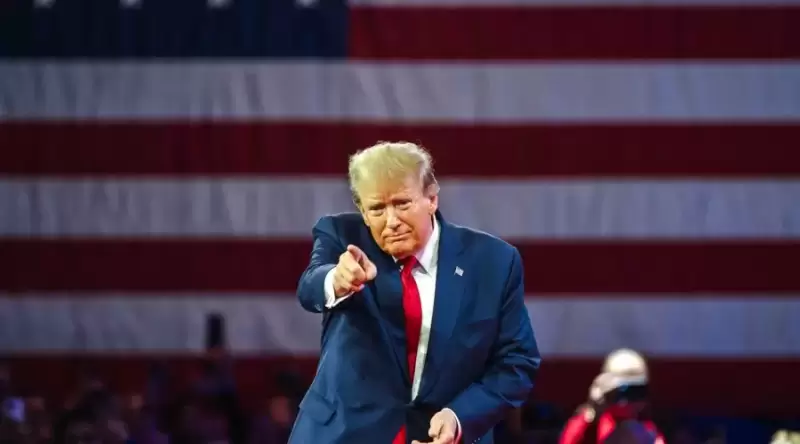 |
|
 |
|
 |
|
 |
|
 |
|
 |
|
 |
|
 |
|
 |
|
 |
|
 |
|
 |
|
 |
|
 |
|
 |
|
Cryptocurrency News Articles
India's Mammoth Election Omits Blockchain Technology
May 06, 2024 at 09:00 pm
Despite India's embrace of blockchain technology in various domains, it remains notably absent in this year's national elections. The country's vast population and technological disparities present challenges, while the complexity of blockchain systems and the absence of standardized regulations raise concerns among policymakers.

India's Mammoth Election Excludes Blockchain Technology
India, the world's largest democracy, embarked on its mammoth seven-phased election on April 19, culminating on June 1, with no discernible presence of blockchain technology in the electoral process. The election aims to elect 543 members of the Lok Sabha, the lower house of Parliament, with vote counting and result declaration scheduled for June 4.
Despite India's significant adoption of blockchain technology across various sectors, the technology remains conspicuously absent from its national elections. "Blockchain technology, though widely prevalent in different industries, has not penetrated India's elections yet," stated Rajagopal Menon, Vice President of WazirX, one of India's prominent digital asset trading platforms.
India's rapidly growing economy has positioned it as a key catalyst for achieving its ambitious target of a $5 trillion economy by 2028. Leveraging AI and blockchain technologies, India has also established itself as a global superpower while etching its name in history as the first nation to successfully execute a soft landing on the unexplored South Pole of the Moon.
"As governments and political parties embrace technology, the next innovation wave could involve permissioned blockchain, which possesses the scalability to tally votes from millions of citizens simultaneously, even in a phased manner," Menon suggested.
India presently relies on indigenous technology comprising Electronic Voting Machines (EVMs) and the Voter Verifiable Paper Audit Trail (VVPAT). Menon elaborated, "The transition from physical ballots to EVMs occurred within the last decade, but blockchain could potentially be the future. An EVM-based smart chain would be ideal for elections, provided it can handle the extraordinary scalability required to process millions of votes concurrently."
He further emphasized the critical importance of robust security measures to prevent data breaches or hacking. "Developing a permissioned blockchain without revealing voter identities presents challenges and requires the intervention of smart contracts. This can only be realized with enhanced blockchain adoption in public systems and a well-defined set of regulations."
Elections in India are inherently expensive endeavors. In 2024, it is projected to be the world's costliest election, with candidates and political parties anticipated to spend approximately $14.4 billion. The 2019 national elections saw an expenditure of roughly $7.2 billion.
Blockchain's Potential: A Game-Changer
Electronic voting machines (EVMs) used in Indian elections have faced criticism over concerns such as breakdowns during the polling process. "Blockchain technology offers the potential to transform the election process significantly by addressing key challenges like security, transparency, and credibility," emphasized Raj Kapoor, founder of the India Blockchain Alliance.
Blockchain's implementation can enhance transparency by providing a publicly accessible and immutable record of all voting transactions, fostering trust and confidence in the electoral process while eliminating doubts about the accuracy and impartiality of the results. "Election authorities and technology experts should collaborate with election monitoring groups to impart knowledge on utilizing democratized technologies to ensure a fair and impartial electoral process," Kapoor urged.
Blockchain's application would render voting records unalterable, and unique identities would eliminate the possibility of vote manipulation or skewing. "Blockchain technology can revolutionize elections, particularly in nations with vast electorates like India. It can deliver cost-effective, instantaneous, and timestamped results, facilitating constituency-based result computation," explained Menon of WazirX.
"If integrated with devices like mobile phones via Digilocker, voters could cast their ballots from anywhere, regardless of their physical location during election time. This would benefit individuals working in different cities who currently have to travel to their hometowns to vote. It also ensures that geographical distance does not hinder voter participation," Menon added.
Dry Run and Resistance
Khammam, a district in the southern Indian state of Telangana, recently conducted a dry run exercise for the country's first smartphone-based e-voting system organized by the Telangana State Election Commission (TSEC). The dry run employed blockchain technology to securely store and protect de-identified and encrypted votes as immutable records.
Kapoor commented, "The Telangana State Election Commission's distributed ledger technology-based e-voting application will eventually enhance the fairness and transparency of the voting process, despite the criticism that similar projects have often faced in India."
Tamil Nadu has also proposed a state-wide blockchain infrastructure to be utilized by various government agencies and public sector entities. It envisions a single platform where blockchain applications can be developed and deployed for the state's departments and public sector enterprises. This platform will operate as a Blockchain As A Service (BAAS) provider to government departments, public sector entities, agencies, and organizations.
Despite its potential, blockchain technology's absence from Indian elections is attributed to several factors. "Legal frameworks governing elections vary across jurisdictions, and policymakers may hesitate to adopt blockchain technology due to concerns about privacy, compliance, and accountability. Additionally, the lack of standardized regulations for blockchain-based voting systems can lead to uncertainty and reluctance among election authorities and stakeholders," Kapoor explained.
Technological barriers and limitations pose another challenge, particularly in a country with India's vast population. Skepticism towards emerging technologies or resistance to change can further hinder the adoption of blockchain-based elections.
"Issues such as scalability, latency, and network congestion can compromise the efficiency and reliability of blockchain networks, potentially leading to delays or disruptions in the voting process. The complexity of blockchain technology may pose challenges for election officials and voters, particularly those with limited technical expertise, resulting in usability issues and potential errors," Kapoor concluded.
India's journey towards becoming a leader in the Web3 era is comprehensively explored in the video "India poised to become leaders in Web3."
Disclaimer:info@kdj.com
The information provided is not trading advice. kdj.com does not assume any responsibility for any investments made based on the information provided in this article. Cryptocurrencies are highly volatile and it is highly recommended that you invest with caution after thorough research!
If you believe that the content used on this website infringes your copyright, please contact us immediately (info@kdj.com) and we will delete it promptly.
-

-

-

-

-

- US President Donald Trump has once again delivered on his campaign promise.
- Apr 03, 2025 at 03:05 pm
- Yesterday (Wednesday), he officially ordered reciprocal tariffs to be imposed globally from 5 April. Global stock and cryptocurrency markets are expected to see cautious investor sentiment due to the possibility of an escalated trade war triggered by these US tariffs.
-

-

- Pi Network Price Crashes Hard as Binance Skips the Token in Its Latest Vote to List Initiative
- Apr 03, 2025 at 03:00 pm
- Pi Network supporters are once again left frustrated as Binance skips the token in its latest Vote to List initiative. This marks the second time the world's largest exchange has ignored Pi, shutting down hopes of an imminent listing.
-

-




























































